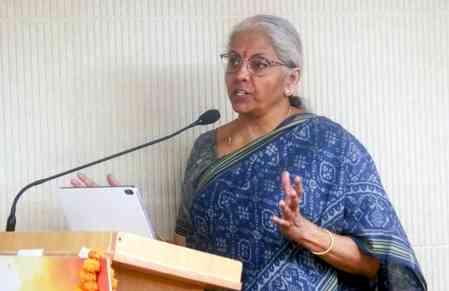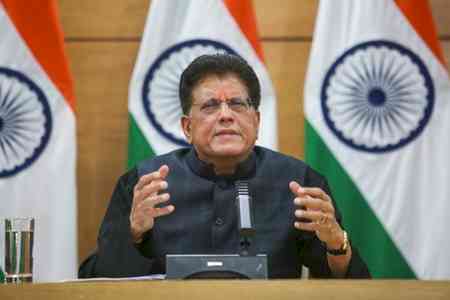Structural reforms in last 11 years reshaped India’s macroeconomic fundamentals: FM Sitharaman
Structural reforms over the last 11 years under Prime Minister Narendra Modi’s vision reshaped India’s macroeconomic fundamentals, Finance Minister Nirmala Sitharaman said on Saturday.

New Delhi, June 14 (IANS) Structural reforms over the last 11 years under Prime Minister Narendra Modi’s vision reshaped India’s macroeconomic fundamentals, Finance Minister Nirmala Sitharaman said on Saturday.
India’s emergence as the fastest-growing major economy is anchored on several favourable factors, and is closely intertwined with strengthening balance sheets of key sectors of the economy – banks, corporates, households, government and the external sector, the Finance Minister wrote in a media article.
“The transformation of the Indian economy over last 11 years – from having a twin-deficit problem to a five-balance sheet advantage – is an outcome of the concerted policy efforts under PM Modi’s leadership,” FM Sitharaman posted on social media platform X.
She further stated that "when we came to power in 2014, the foremost priority was growth revival as India was then considered as part of the ‘Fragile Five’ economies."
“Structural reforms were introduced, including GST, IBC, RERA, and during the pandemic years, the PLI Scheme, and ECLGS to help credit-worthy MSMEs survive the Covid shock. Equally, infrastructure and asset creation, neglected in the previous decades, was revived,” the finance minister emphasised.
From the digital payment revolution initiated by UPI (achieving transaction volumes of over 185 billion in FY25) to the entrepreneurial appetite revealed by MUDRA loan uptake (cumulative disbursements of over Rs 33 lakh crore to 53 crore+ loan accounts), “the last 11 years have shown the heights our economy can reach when we combine trust-based governance with systematic reduction of regulatory burden and an expansion of public goods,” she stressed.
Commerce and Industry Minister Piyush Goyal said earlier this month that India’s FDI inflows now originate from 112 countries, compared to 89 in 2013–14, underscoring the country’s rising global appeal.
India’s FDI success story is not only about impressive numbers but also a reflection of visionary reforms, policy clarity, and the global community’s trust in the country’s economic future, he mentioned.



 IANS
IANS 










